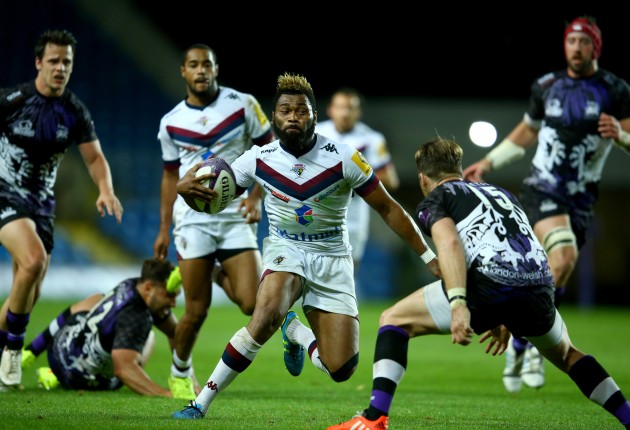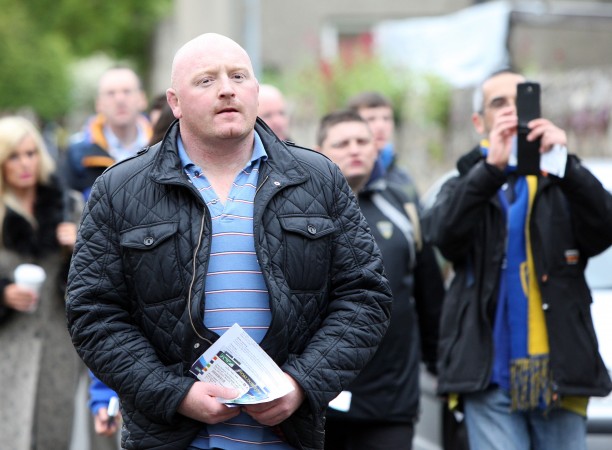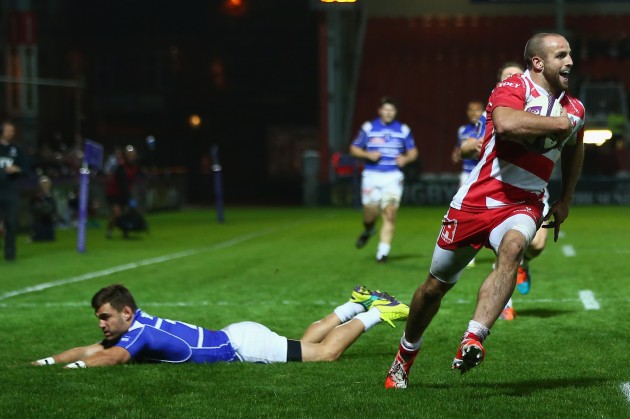For all the hyperbole about the make-up of the new Europe, in France, the European Challenge Cup is not being given much priority
I was at a loose end on Thursday evening. I did think about a trip to the cinema to see Paddington, but in the end I settled down with a good book. I suppose I could have tuned into see La Rochelle host Exeter in the Challenge Cup, but why bother? The outcome was all too predictable, though admittedly the west countrymen’s winning margin of 36-10 was a little surprising. La Rochelle must really have been going through the motions.
It was a similar story at Connacht, where visitors Bayonne were thrashed 42-19. Stade Francais made more of a fist of their journey to Newcastle, but the Parisians – third in the Top 14 – still ended up losing 30-23 to one of the Premiership’s strugglers.
In fact the only French club to beat foreign opposition in the Challenge Cup at the weekend were Grenoble, who routed Rovigo 68-10, in front of a doughty crowd of 7,800 spectators. They like their rugby in Grenoble, which is more than can be said for coach Bernard Jackman as far as the Challenge Cup goes.
The Irishman was characteristically forthright after the game when asked about the tournament. “The Challenge Cup, from my point of view, is a bit of a pointless competition in terms of your first-grade players,” explained the former Leinster hooker. “There is no real benefit for us unless we go and win it. And, even if we do, we wouldn’t be guaranteed a place in the Champions Cup for next year.”
From next season the winners of the Challenge Cup – if they haven’t already qualified for the Champions Cup through their league position – will participate in the play-off for Europe’s showpiece tournament, a cut-throat finale to the season that, in the case of a French club, would require them to travel to the winners of a play-off between the seventh placed Aviva Premiership club and the eighth placed Pro12 side.
Jackman isn’t alone among Top 14 coaches in treating the Challenge Cup as an unwelcome distraction to the more serious business of domestic rugby. In the first three rounds of the competition, French clubs have beaten just six foreign opponents while racking up some pretty spectacular defeats among their twelve failures. Stade Francais lost 38-22 at home to the Dragons, Brive were thrashed 55-0 away at Gloucester and a week later were beaten at home by Italian outfit Zebre, and Grenoble were hammered 37-14 in Cardiff.
But why should French clubs field full-strength teams now that the winner of the Challenge Cup no longer automatically qualifies for the following season’s Champions Cup? What’s the incentive other than filling a space in the trophy cabinet. Prestige? What, beating the likes of Rovigo and the Bucharest Wolves in front of a couple of thousand indifferent spectators?
By the very nature of the competition the French clubs contesting the Challenge Cup weren’t among the elite of their domestic league the previous season. As it’s turned out, Bordeaux, Grenoble and Stade Francais are all now riding high in the Top 14 (sixth, fifth and third) but none have the strength in depth of a Toulon or Clermont. They have to husband their resources, particularly at this time of year, with four rounds of the Top 14 scheduled between December 20 and January 10.
For French clubs in the Challenge Cup there is only one priority: the Top 14. Not only does that now offer the one automatic gateway into the Champions Cup through finishing in the top six (with the seventh placed club entering the play-off) but more importantly, struggling clubs such as La Rochelle and Lyon are already fighting a relegation battle with huge financial consequences if they lose.
The French clubs would be better off without the aggravation of the Challenge Cup but obviously the Challenge Cup would not be better off without them. The 7,800 spectators who watched Grenoble thrash Rovigo was nearly twice as many as the 4,089 crowd at Newcastle or the 4,425 fans who saw Connacht brush aside Bayonne. When Stade Francais edged past the Bucharest Wolves 13-9 in round two, they did so in front of just 600 Romanians.
For how long will the French tolerate this second-rate competition? In Jackman’s view, not long. “I think the organisers have probably got a bit of a shock from how little interest the French teams have had in it,” he said. “And the public as well…the public aren’t silly and you can’t pull the wool over their eyes: they see it for what it is.”
Which at the moment, is not much. At least there’s always a good book.








